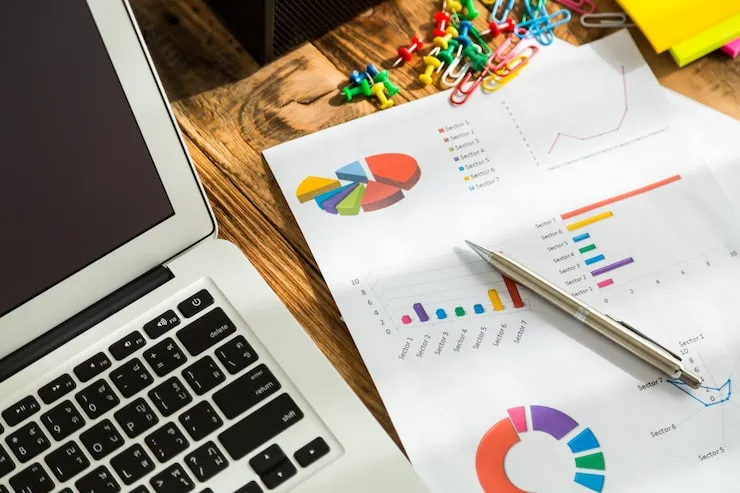
If you’ve been paying sustentation to the news lately, you’ve likely heard one word unceasingly showing up in financial headlines: Inflation is a significant economic factor well-expressed most individuals and their financial well-being. But what is it, exactly?
Inflation is specified as a unstipulated increase in prices and a subtract in the purchasing value of money. Inflation happens for many variegated reasons. Production forfeit increases, increase in demand, global events, and waffly fiscal policy at a government level can all be contributing factors.
The stereotype yearly rate of inflation from 1960 to 2022 was 3.8%. However, in 2022, the stereotype rate of inflation ballooned to 8%. As of May 2023, the year-over-year inflation rate was 4.0%. Recently, the Federal Reserve has been working to increase interest rates to slow inflation – plane though that can bring a new layer of financial complexity for investors.
Needless to say, there have been significant inflation changes over the past few years. While it seems to be easing in the first two quarters of 2023, it largely remains on the minds of investors and consumers. Regardless of “why” inflation happens, understanding how inflation impacts finances is crucial for making informed money decisions and safeguarding financial stability.
Become an educated investor
Feel wifely knowing you have the information you need.
1. Purchasing Power Erosion
One of the primary impacts of inflation is the erosion of purchasing power. Purchasing power is substantially how much your money can buy in the current economic state.
Inflation reduces the value of money over time. Meaning, as prices rise, the same value of money can buy fewer goods and services.
For example, if the inflation rate is 3%, the price of goods and services will often increase by that value each year. Consequently, the money you have today will have less ownership power in the future.
One worldwide example of inflation is the forfeit of milk or eggs at the grocery store. Let’s say in 1960 a gallon of milk forfeit $1. Today, the forfeit of milk ranges between $2.99 and $4 depending on where you live in the United States. Just looking at the price of milk alone, you can see how having $1,000 in savings for living expenses in 1960 would have dramatically variegated purchasing power than having $1,000 in savings today. As products and services increase their costs, the value of goods and services your money can purchase decreases.
This erosion of purchasing power can stupefy your worthiness to maintain the same standard of living and unzip long-term financial goals.
The CPI, or Consumer Price Index, is one way to stay updated on purchasing power. This alphabetize is how the government measures the prices of goods and services as they fluctuate. It looks something like this:
Exhibit 1: Percent changes in CPI for All Urban Consumers (CPI-U): U.S. municipality average

Exhibit 1. Percent changes in CPI for urban customers in the US from November 2022 to May 2023. From the Consumer Price Alphabetize Summary by the US Bureau of Labor and Statistics. (https://www.bls.gov/news.release/cpi.nr0.htm)
Since the alphabetize is published monthly, it is a solid way to stay informed well-nigh current consumer goods and services costs. You might plane use it to your advantage, for instance, to negotiate your salary by giving an employer touchable numbers to reference.
Also note that inflation typically occurs during periods of economic strength. This ways you can visualize living through such a period that your financing will most likely be driven up, well-expressed your purchasing power. Staying superiority of trends can be key here.
2. Savings and Investments Effects
Unfortunately, inflation doesn’t just stupefy purchasing power for goods and services, it can moreover harm savings and investments.
The reason? If interest rates on savings finance or fixed-income investments do not alimony up with inflation, the very value of your savings can subtract over time.
For instance, if your savings worth offers an interest rate of 2% while inflation is 3%, you are powerfully losing purchasing power.
Inflation moreover decreases the values of bonds. The longer the term of a bond, the greater the risk that inflation will hurt the investor’s return. Let’s say you purchased immuration at a stock-still interest rate of 0.90% for a term of 10 years. If the Federal Reserve chooses to increase interest rates to gainsay inflation, this could result in a decreased yoke value over time. However, it’s important to note that not all immuration are equally impacted by inflation. Short-term bonds, for example, are less impacted by inflation and interest rate changes.
Another type of worth to alimony in mind regarding inflation is retirement savings accounts. Many people set a savings goal for retirement without considering how variegated the economy will inevitably be or what the dollar will be worth once they’ve reached retirement age. Plan on knowing what an plane higher number looks like, as your current goals will likely not have the same value in the future.
To gainsay inflation with your savings and investments, it’s crucial to consider investment options that have the potential to outpace inflation, such as stocks, real estate, or diversified portfolios. Investing in resources that historically provide returns higher than the inflation rate can help preserve and grow your wealth.
3. Budgeting and Financial Planning Adjustments
People often finger the sting of inflation most directly in personal budgeting and financial planning. That’s considering rising financing seep into many aspects of everyday living expenses like housing, groceries, transportation, and healthcare, to name a few.
When creating your budget, it’s essential to visualize and worth for these increasing costs. Review your spending patterns, identify areas where you can adjust, and prioritize saving and investing.
By proactively adjusting your financial plan and budgeting strategies, you can largest navigate the challenges posed by inflation.
The Future’s Still Bright
Inflation can significantly impact your finances – from diminishing your purchasing power to influencing your savings and investments.
A little knowledge can truly equal power. Being passive with your finances or in withholding well-nigh the economic climate will likely reservation you off baby-sit and potentially increasingly taxed by inflation.
Instead, by understanding how inflation affects your financial situation, you can visualize those changes, make informed decisions, and take proactive steps to mitigate its impact.
Knowledge only helps though if it’s backed up by action. When taking whoopee on inflation, be sure to incorporate the pursuit into your financial planning:
- Regularly reassess your financial plans and make adjustments when needed
- Consider seeking translating from financial experts to ensure your financial stability in the squatter of inflationary pressures
- Stay updated on inflation trends
By staying on top of these three things, you can largest protect your wealth and stay on track to unzip your long-term financial goals. We genuinely love helping people understand their finances largest and help them uncurl their values with their money. Reach out to Abacus and schedule a undeniability today and find out how we can help turn uneasiness into action.






